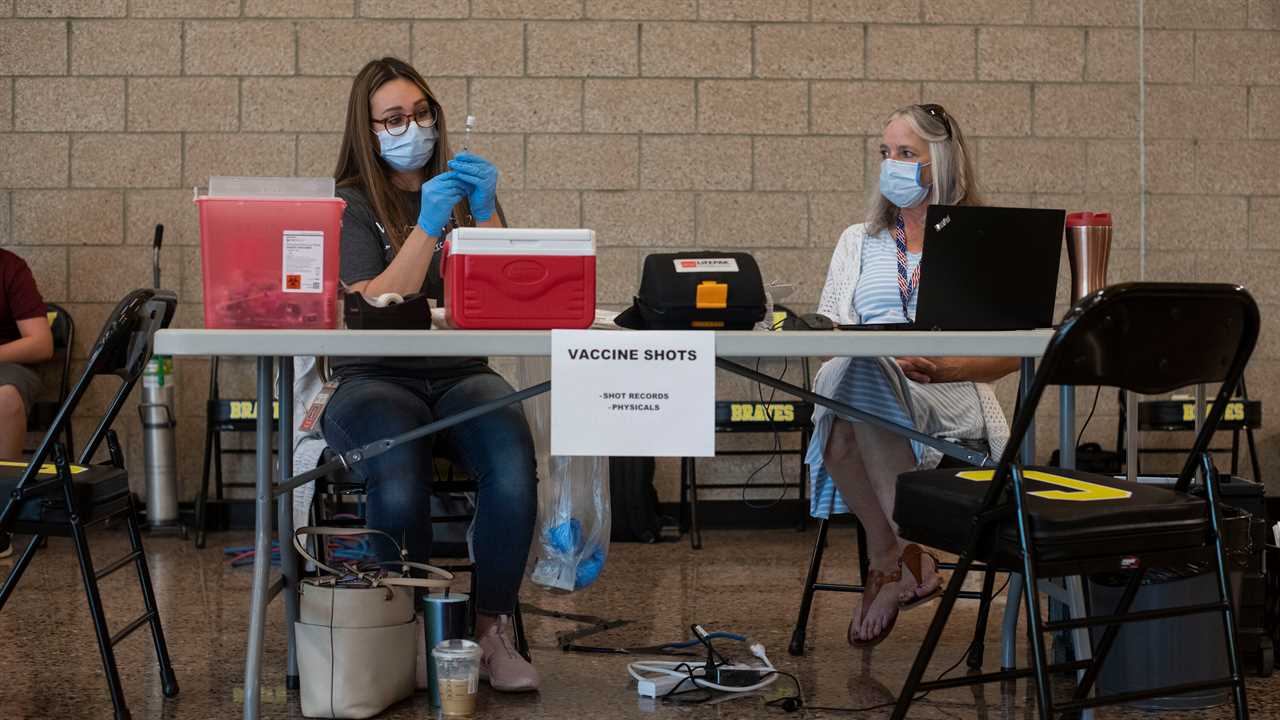
WASHINGTON — Pfizer and BioNTech announced on Tuesday that they had submitted data to the Food and Drug Administration that the companies said showed their coronavirus vaccine is safe and effective in children ages 5 to 11.
The companies said they would submit a formal request to regulators to allow a pediatric dose of their vaccine to be administered in the United States in the coming weeks. Similar requests will be filed with European regulators and in other countries.
The announcement, coming as U.S. schools have resumed amid a ferocious wave of the highly contagious Delta variant, brings many parents another step closer to the likelihood of a coronavirus vaccine for their children.
Asked on Tuesday when the vaccine might be cleared for children, Pfizer’s chief executive, Dr. Albert Bourla, said he did not want to pre-empt regulators.
“It’s not appropriate for me to comment how long F.D.A. would take to review the data,” Dr. Bourla said in an appearance at the Atlantic Festival, hosted by The Atlantic magazine. “They should take as much time as they think is appropriate for them.” He added that an authorization around Halloween, as some health officials have suggested could be possible, was “one of the options, and it’s up to the F.D.A.”
Just over a week ago, Pfizer and BioNTech announced favorable results from their clinical trial with more than 2,200 participants in that age group. The F.D.A. has said it will analyze the data as soon as possible. Dr. Peter Marks, the agency’s top vaccine regulator, said recently that barring “surprises,” an authorization could come in “a matter of weeks, not months” after the companies submitted data.
The companies said last week that their vaccine had been shown to be safe and effective in low doses in children ages 5 to 11, offering hope to parents in the United States who are worried that a return to in-person schooling has put children at risk of infection.
Latest Updates
- Gov. Hochul chooses Mary Bassett to lead N.Y.’s health department.
- A large share of Hispanic adults in the U.S. got vaccinated over the summer, a survey shows.
- YouTube bans all anti-vaccine misinformation.
About 28 million children ages 5 to 11 would be eligible for the vaccine in the United States, far more than the 17 million ages 12 to 15 who became eligible for the vaccine in May.
But it is not clear how many in the younger cohort will be vaccinated. Inoculations among older children have lagged: Only about 43 percent of children ages 12 to 15 have been fully vaccinated in the United States, compared with 67 percent of adults, according to federal data.
Although many remain eager to inoculate their children, opinion polls suggest that some parents have reservations. A survey published last month by the Kaiser Family Foundation found that 26 percent of parents of children ages 5 to 11 would vaccinate their children “right away” once doses were authorized for their age group, 40 percent said they would “wait and see” how the vaccine worked before doing so and 25 percent said they would not have their child vaccinated at all.
Studies have shown that unvaccinated children who contract the coronavirus tend not to get seriously ill, leading some parents to wonder whether the risks of a new vaccine outweigh the benefits.
And some parents who are themselves vaccinated have expressed concerns about the relatively small size of the children’s trials and about a lack of data on the long-term safety of the shots. The Pfizer-BioNTech and Moderna vaccines have been tied in rare cases to the heart condition myocarditis, an inflammation of the heart muscle, particularly in younger men. Concern about that possible side effect could be alleviated by the lower doses that children are set to receive of the Pfizer-BioNTech vaccine.






